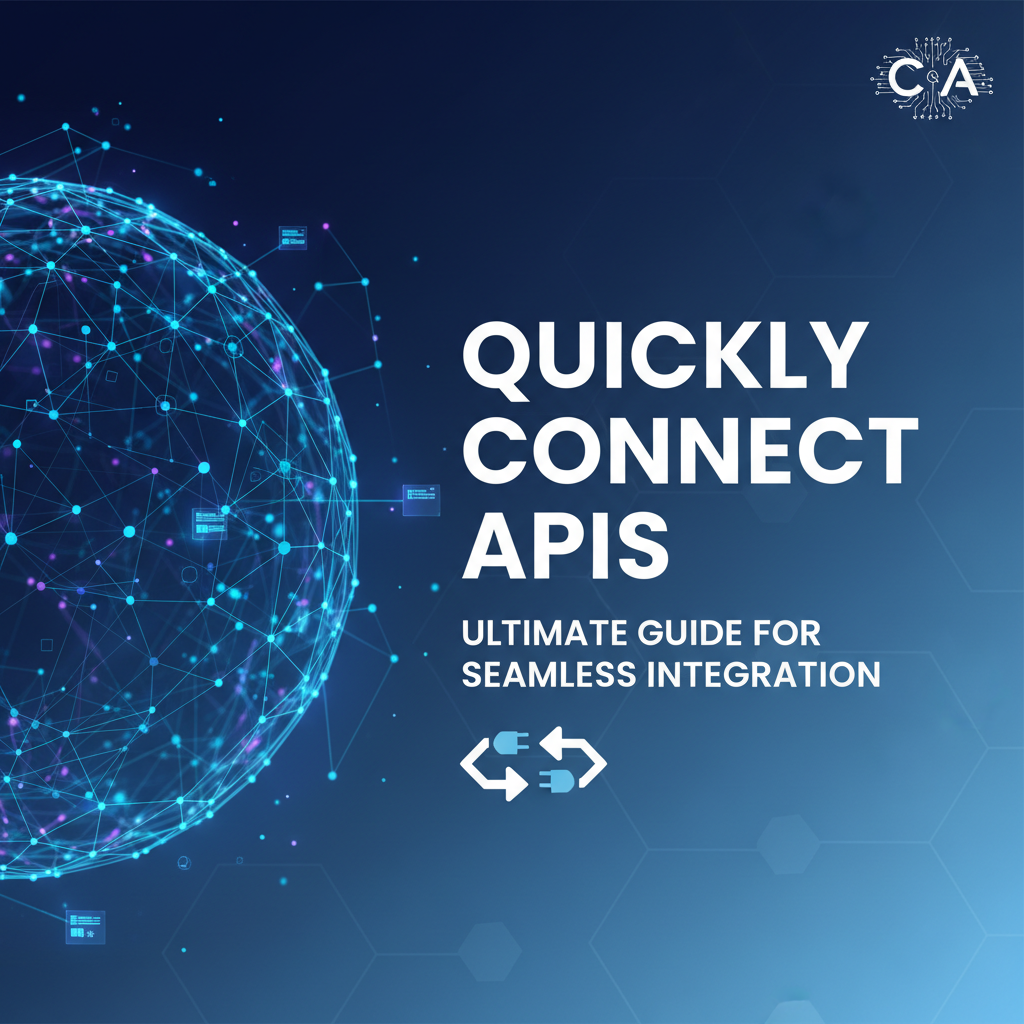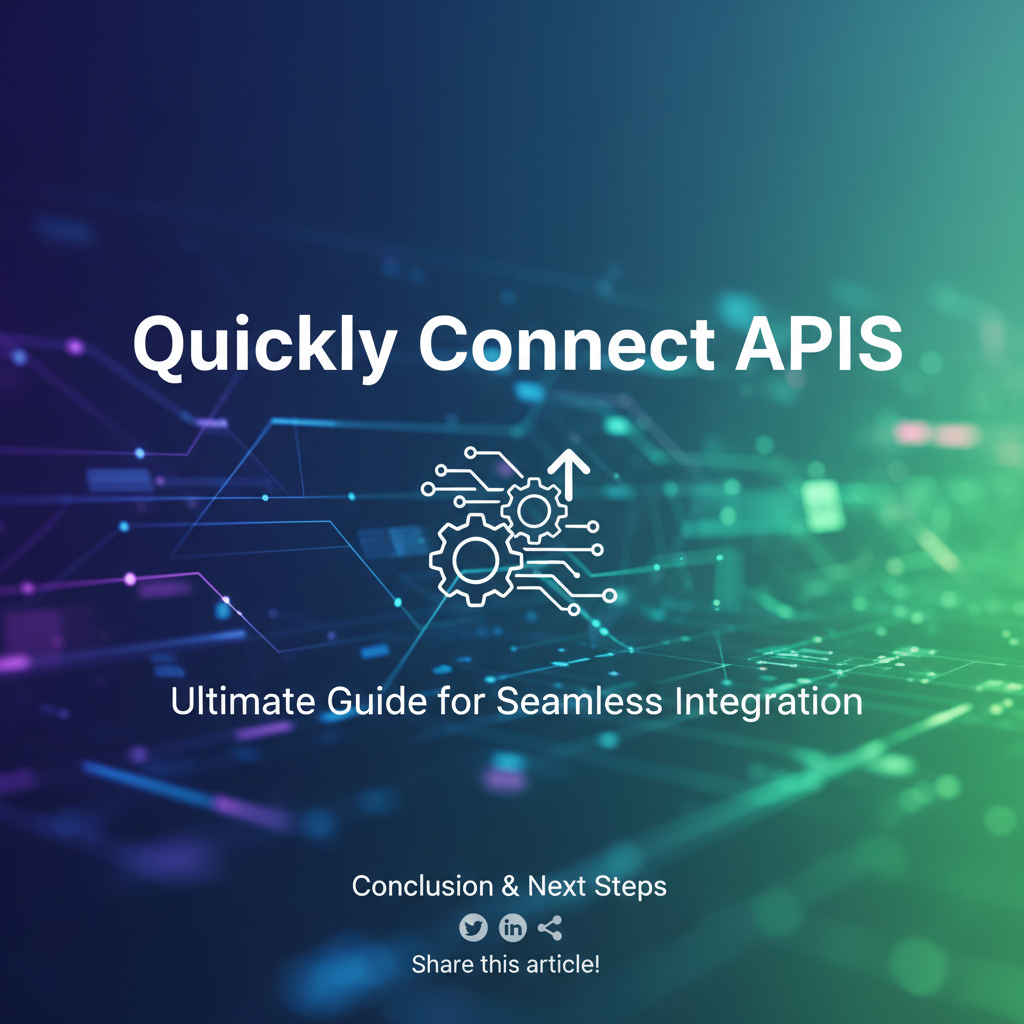Quickly Connect APIs: Ultimate Guide for Seamless Integration

Build AI Agents With Incredible MCP
Introduction
In the rapidly evolving digital landscape, the ability to integrate APIs (Application Programming Interfaces) has become a cornerstone of modern business operations. The Model Context Protocol (MCP) is a revolutionary approach that streamlines the process of API integration, enabling businesses to connect with a vast array of data sources and tools with unprecedented speed and efficiency. This guide delves into the world of MCP, explores the benefits of using an API integration platform, and examines the MCP marketplace. We will also provide actionable advice and a case study on how businesses can leverage these technologies to their advantage. By the end of this comprehensive guide, you will be equipped with the knowledge to seamlessly connect APIs and unlock the full potential of your digital ecosystem.
Understanding MCP
What is MCP?
MCP, or Model Context Protocol, is a protocol designed to facilitate rapid and efficient connection between APIs and various data sources. It acts as a bridge that simplifies the process of integrating different systems, reducing the complexity and time required for such connections.
Key Features of MCP
- Speed: MCP enables connections to be established in under a minute, significantly reducing the time-to-market for new integrations.
- Flexibility: MCP supports a wide range of data sources and tools, making it suitable for diverse business needs.
- Cost-Effective: By minimizing manual configuration and development, MCP can help reduce integration costs.
The Importance of an API Integration Platform
Streamlined Integration Process
An API integration platform is a crucial tool for businesses looking to leverage MCP. These platforms provide a centralized hub for managing and orchestrating API connections, ensuring seamless integration across different systems.
Enhanced Productivity
By automating the process of API integration, businesses can focus on core activities, leading to increased productivity and efficiency.
Improved Customer Experience
Seamless integration of APIs can enhance the customer experience by providing real-time access to relevant information and services.
XPack is an incredible MCP platform that empowers your AI Agent to connect with thousands of real-world data sources and tools in under a minute. Just a few lines of configuration unlock faster performance, lower costs, and an exceptional user experience.Try XPack now! 👇👇👇
Exploring the MCP Marketplace
What is the MCP Marketplace?
The MCP marketplace is a collection of pre-built APIs and data sources that can be quickly connected using MCP. This marketplace allows businesses to access a vast array of resources without the need for extensive development.
Benefits of the MCP Marketplace
- Access to a Wide Range of Resources: The MCP marketplace offers access to thousands of APIs and data sources.
- Reduced Development Time: By leveraging pre-built resources, businesses can significantly reduce the time required for integration.
- Cost Savings: The marketplace can help reduce integration costs by eliminating the need for custom development.
Case Study: Transforming Business Operations with MCP
Background
Let's consider a hypothetical company, Tech Solutions Inc., which specializes in providing IT services to small and medium-sized businesses. The company faced challenges in integrating various APIs from different vendors, which led to inefficiencies and increased costs.
Solution: Implementing MCP
Tech Solutions Inc. decided to implement MCP as a solution to its API integration challenges. They partnered with an API integration platform provider that offered support for MCP.
Results
- Rapid Integration: Using MCP, Tech Solutions Inc. was able to connect APIs in under a minute, significantly reducing the time-to-market for new integrations.
- Cost Savings: The company experienced a 30% reduction in integration costs.
- Improved Efficiency: The streamlined integration process allowed the company to focus on core activities, leading to increased productivity.
Best Practices for API Integration with MCP
1. Plan Your Integration Strategy
Before diving into API integration, it's crucial to have a clear strategy in place. This includes identifying the APIs you need to integrate, understanding the data flow, and setting realistic timelines.
2. Choose the Right Integration Platform
Select an API integration platform that supports MCP and offers the features and capabilities you need for your specific use case.
3. Leverage the MCP Marketplace
Explore the MCP marketplace to find pre-built APIs and data sources that can accelerate your integration process.
4. Test and Iterate
Thoroughly test your integrations to ensure they work as expected. Be prepared to iterate and make adjustments as needed.
5. Monitor and Maintain
Regularly monitor your integrations to identify and resolve any issues that may arise. Maintain your connections to ensure they remain up-to-date and functional.
Conclusion
API integration is a critical component of modern business operations. By leveraging MCP and an API integration platform, businesses can streamline the process of connecting APIs, reducing costs and increasing efficiency. The MCP marketplace offers a vast array of resources that can further accelerate the integration process. As we've seen in our case study, the benefits of implementing MCP are significant. By following best practices and choosing the right tools, businesses can unlock the full potential of their digital ecosystems.
FAQ
Q1: What is the difference between MCP and other API integration protocols?
A1: MCP stands out for its speed and flexibility compared to other API integration protocols. It allows for rapid connections and supports a wide range of data sources and tools.
Q2: Can MCP be used for integrating APIs from different vendors?
A2: Yes, MCP can be used to integrate APIs from different vendors, making it a versatile solution for diverse business needs.
Q3: How does MCP contribute to cost savings in API integration?
A3: MCP reduces integration costs by minimizing manual configuration and development, allowing for faster connections and fewer resources required.
Q4: Is it necessary to have technical expertise to use MCP?
A4: While technical knowledge is helpful, many API integration platforms designed for MCP are user-friendly and require minimal technical expertise.
Q5: Can MCP be used to integrate APIs with legacy systems?
A5: MCP can be used to integrate APIs with legacy systems, but it may require additional considerations depending on the complexity of the legacy system.
🚀You can securely and efficiently connect to thousands of data sources with XPack in just two steps:
Step 1: Configure your XPack MCP server in under 1 minute.
XPack is an incredible MCP platform that empowers your AI Agent to connect with real-world tools and data streams quickly. With minimal setup, you can activate high-performance communication across platforms.
Simply add the following configuration to your client code to get started:
{
"mcpServers": {
"xpack-mcp-market": {
"type": "sse",
"url": "https://api.xpack.ai/v1/mcp?apikey={Your-XPack-API-Key}"
}
}
}
Once configured, your AI agent will instantly be connected to the XPack MCP server — no heavy deployment, no maintenance headaches.

Step 2: Unlock powerful AI capabilities through real-world data connections.
Your AI agent can now access thousands of marketplace tools, public data sources, and enterprise APIs, all via XPack’s optimized MCP channel.

